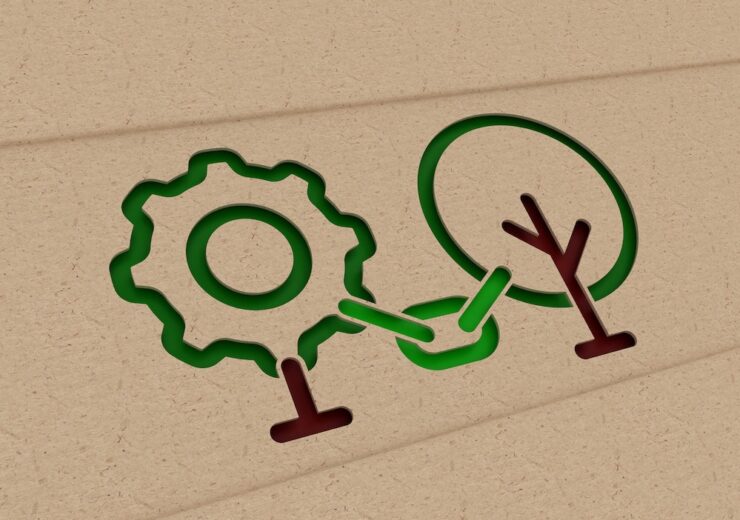Management consultancy firm Accenture found that 60% of consumers were making more conscious purchases since the start of the pandemic

According to research published by bank HSBC, shares of companies focused on climate change or environmental, social and governance (ESG) have largely outperformed the market during the early weeks of the pandemic (Credit: Shutterstock/Digital Saint)
The Covid-19 pandemic has led businesses to begin to think about improving how their supply chains operate, with some looking at transitioning to one that’s more sustainable.
Doing this involves integrating environmentally and financially viable practices into the complete supply chain lifecycle, from product design to material selection.
Speaking at the World Economic Forum’s Davos summit towards the end of January, management consultancy Bain and Company’s chairwoman Orit Gadiesh believes that, if 2020 taught us anything, it’s that in a “world with trade wars, extreme climate events and future pandemics, sustainability and resilience must enter into our planning”.
She added: “We used to live in a world where responsibilities began when a business purchased something and ended when that product was sold – that’s no longer the case.
“Resilience and sustainability require us to expand our field of vision to raw materials and forward to after consumption, including packaging, waste and the environmental cost of transport.
“As a result, companies must redefine and redesign the way they think about the value chain.”
In sustainable supply chains, resilience and sustainability need to be combined
According to research published by bank HSBC at the start of the pandemic, shares of companies focused on climate change or environmental, social and governance (ESG) have largely outperformed the market during the early weeks of the pandemic.
A big reason for this is, according to the business advisory organisation the Business Growth Hub, because it requires transparency, communication and a thorough understanding of suppliers and the risks they expose.
This knowledge can be invaluable in managing vulnerabilities and responding quickly in a crisis.
As to how they can introduce more sustainable practices into supply chains, Gadiesh says businesses should “start small but start and expand later”.
She added: “Collaboration is essential, your entire supply chain may not be a meaningful portion of a major market and the cost of it alone may be too much, so you need collaboration both upstream and downstream.
“Help small suppliers and recognise that many may not have the resources or skills to join a programme, especially those in developing countries.
“Make sure you make good relevant data and technology choices as a foundation, as we can only hope to truly understand an impact once we accurately know where inputs come from and where products end up.
“With collaboration, rules for proactive data governance are critical, partners worry about sharing data and that’s understandable, so issues such as data permissions and governance must be determined upfront to build trust.
“This, by the way, is where public-private partnerships can be large and really healthy.
“Finally first mover’s reap benefits, and not just in terms of public relations, it’s better to have established than to have that standard imposed on you.”
A shift towards sustainability is a business opportunity ‘because the consumer wants it’, says Bain and Company chairwoman
In its global survey for 2020, management consultancy firm Accenture found that 60% of consumers were making more environmentally friendly, sustainable or ethical purchases since the start of the pandemic.
Alongside this, research group Kantar discovered that since Covid-19, sustainability was more of a concern for consumers than before the pandemic.
In June, global executive firm DHR International published a white paper exploring the conscious consumer pre, post or in the midst of the pandemic.
Key takeaways from this included the fact that conscious, sustainable consumerism is the “true future of retail”, with sustainability being “smarter and more profitable”.
Added to this, research conducted by the Capgemini Research Institute found that almost 80% of consumers say they are changing their purchase preferences and behaviours based on brands and retailers’ social responsibility, inclusiveness or environmental impact.
Because of this, Gadiesh feels “very optimistic” as, if consumers want it, there’s a “business opportunity”.
She added: “And the more we’re able to shift to communicating what we’re doing to the consumer, making them aware about your brands and what stands behind that, the more it will be a commercial rather than an ESG discussion.
“I think the more we do that, the more we force the ESG topics into one direction, and I think a lot of common sense brings us very far.
“Let’s just not wait for too long until all the ducks are in a row and everybody is aligned.”
